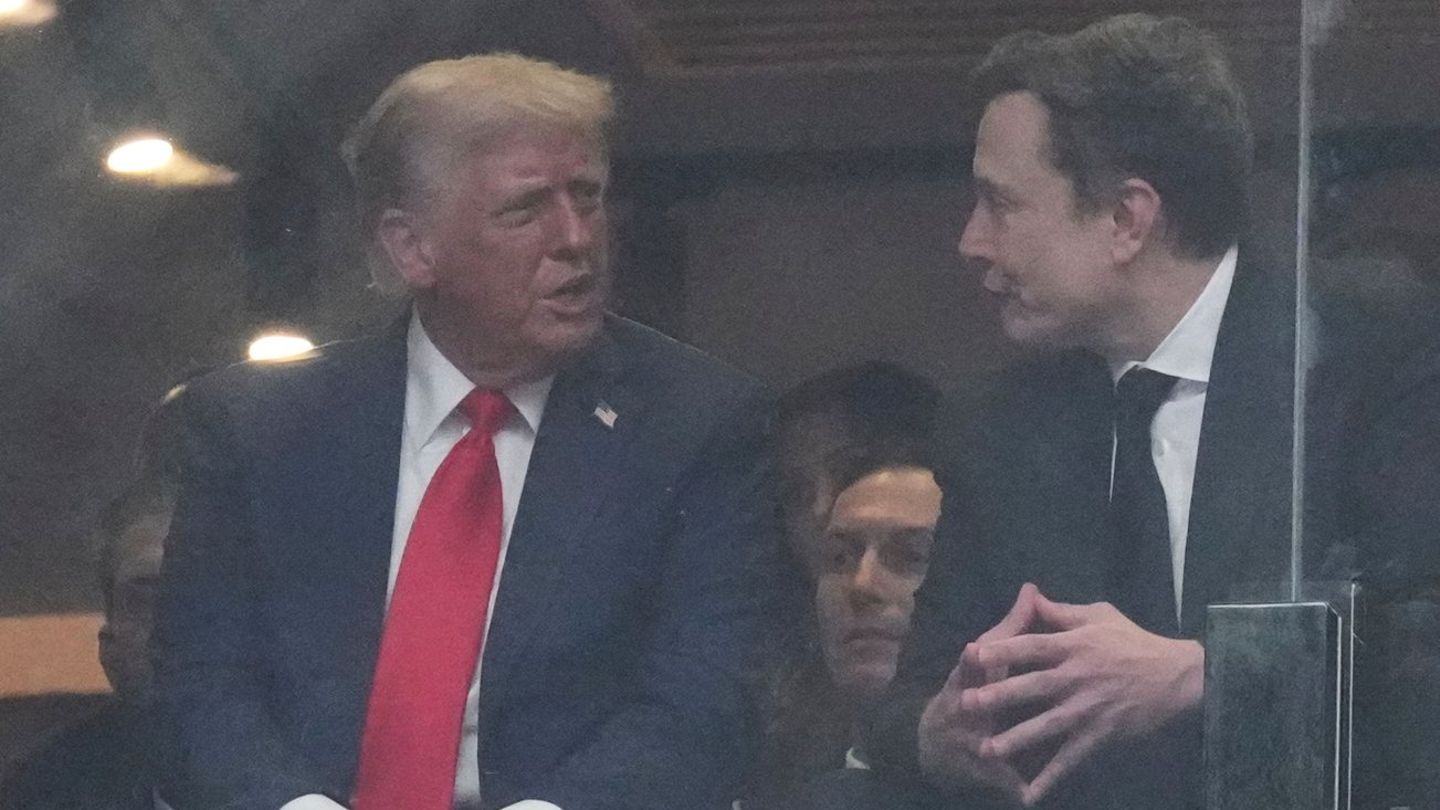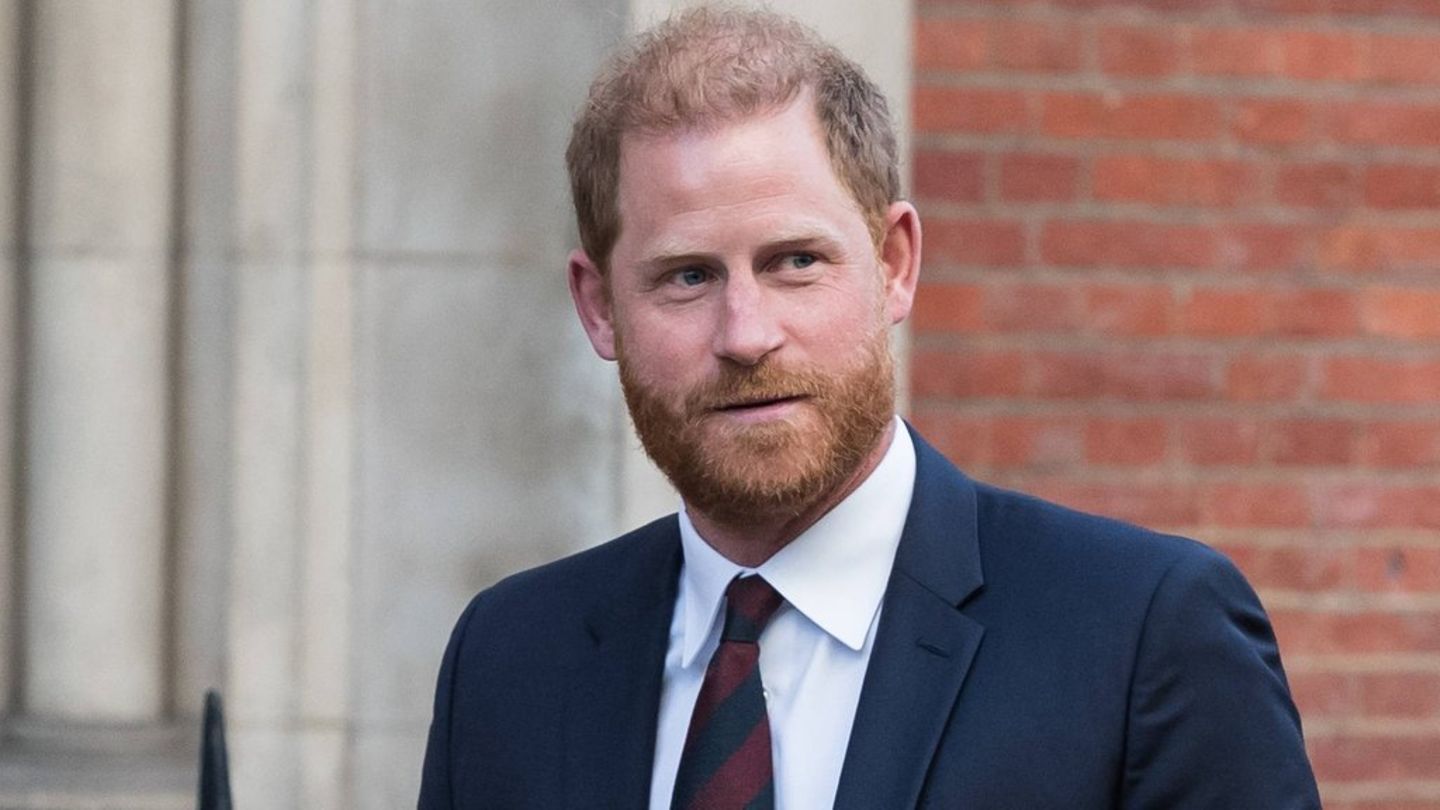Federal election
Merz and Söder are going into the election campaign with a distinction from the Greens
Copy the current link
Chancellor candidate Merz and CSU leader Söder demonstrate unity when presenting the joint election program. Also when it comes to the Greens. But when it comes to the topic, there are still nuanced differences.
The Union is entering the federal election campaign with a clear demarcation from the Greens and a “counter-proposal” to the collapsed traffic light coalition. “The Greens are now apparently moving firmly to the left. They not only want to continue with what they have already done wrong in economic policy, but they want to make it worse,” said Union Chancellor candidate and CDU leader Friedrich Merz at a joint meeting Appearance with CSU boss Markus Söder in Berlin.
The leaders of the Union parties had previously unanimously approved the joint election program.
“We will not continue Habeck’s economic policy”
Merz criticized the Greens for “relying even more heavily on high taxes, high debts and high levels of redistribution through subsidies for a few.” A federal government led by the Union will not continue the policy of Economics Minister Robert Habeck (Greens).
If the Greens want to continue and intensify this, “then the Greens are moving away from any opportunity for cooperation that they may have previously had on one issue or another. Perhaps more so at the beginning of the electoral period than now.” Both Merz and Söder criticized the Greens’ plans for a global billionaire tax as presumptuous. The Union will not support something like this.
Merz: Coalition is a question of overlap in content
When asked whether this was Söder’s clear rejection of the black-green coalition, Merz emphasized that “the democratic parties in the political center must remain able to cooperate with each other.” Söder also sees it that way. “The question of who you then go into a coalition with is a question of the intersections in the matter. And I say that what the Greens are currently doing, continuing and intensifying, they are moving away from what we are doing in the think the matter is right.”
The CSU leader had repeatedly announced that his party would veto a coalition with the Greens, thereby severely restricting the Union’s options when looking for an alliance partner.
Habeck: Reform program against Union recipes from the 90s
Green Chancellor candidate Robert Habeck tried to position the Greens as a reform party. The Union, on the other hand, only has the recipes of the 90s, he said at the presentation of the Greens’ election program in Berlin. He did not comment directly on the black-green debate, but emphasized similarities in support for Ukraine. This also includes the SPD and the FDP. In the Union it is no longer enough to say: “The others can’t do it, they have to go. We’re gone now.”
Merz and Söder emphasize unity
According to Merz, economic policy should be the central issue in the early election planned for February 23rd. A strong economy is “the basis for everything”, including for good social, environmental and climate policy. What is needed is “an end to green economic policy”.
At the same time, Merz emphasized that the sister parties CDU and CSU had found “new unity”. In the 2021 election campaign, a serious rift between Söder and the then chancellor candidate and CDU chairman Armin Laschet placed a heavy burden on the Union election campaign.
Merz and Söder announce a counterproposal to the traffic light dispute
“We want to lead a government without arguments,” announced Merz. It’s about a government that works reliably, predictably and plannably again. After three years of traffic lights, a policy change is necessary. “Continuing like this is not an option.”
The big mistake, especially of Chancellor Olaf Scholz (SPD), was that he allowed the dispute to last for months. “Not only has this left the country in constant unrest, but it has also undermined its authority.” The Union faction leader assured that he would do it differently.
Söder: Scholz was the most embarrassing Chancellor in history
The Bavarian Prime Minister said Scholz was “no longer a role model for democracy and is the most embarrassing chancellor our country has ever had.” Söder referred to Scholz’s statements on Monday evening. The Chancellor had accused Merz of spreading untruths about him: “Fritze Merz likes to tell nonsense,” said Scholz on ZDF. Tünkram is Low German and means something like stupid stuff or nonsense.
Söder now said: “Is it moral maturity to try to denigrate names on a television show in the evening? Is that the example that we would tell our children about how they should deal with others at school, is that tolerance?” He added: “It’s a sign of helplessness, but also of disrespect, to make such fouls.”
Union promises tax cuts and tougher migration policy
In their election manifesto, the Union parties promise, among other things, to reduce numerous taxes after a victory in the federal election and to implement a de facto admission stop for migrants who have entered the country illegally. In addition, compulsory military service should be introduced and Ukraine should receive further support. There are also plans for a “retirement provision from childhood” to include a state-sponsored securities account for each child.
Merz rejects criticism over election program financing
Merz and Söder rejected criticism that the promises of relief in the Union election program were not financed. A considerable amount could be saved on expenses for refugees and citizens’ money. Merz also hinted at the possibility of new debts.
So far, there is neither a supplementary budget for 2024 nor a federal budget for 2025. “For both budget years, 2024 and 2025, the debt brake, as it is currently in the Basic Law, allows new additional loans of around 50 billion euros each,” he said. “If you were to make full use of that – I deliberately say this in the subjunctive – if you were to make full use of that, then you would have an additional 100 billion euros in scope for the federal budget alone.”
dpa
Source: Stern
I have been working in the news industry for over 6 years, first as a reporter and now as an editor. I have covered politics extensively, and my work has appeared in major newspapers and online news outlets around the world. In addition to my writing, I also contribute regularly to 24 Hours World.




